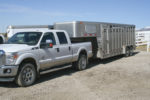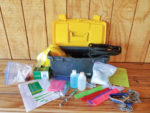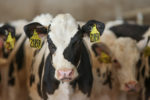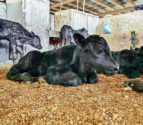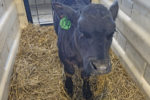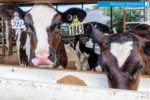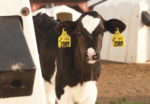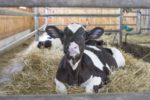Calves & Heifers
Preparing heifers to travel
Raising replacement heifers off-site is popular; however, it comes with various challenges. Producers should consider this and set animals up for success by providing things like electrolytes, good nutrition, supplements and taking trip length and weather into account.
Read More
Helping heifers become healthy mothers
While calving will always be challenging for heifers, there are key steps producers can take to mitigate this. These include feeding quality colostrum right away, vaccinating them effectively and managing animals holistically.
Read More
3 standard calf care practices your calf grower wishes you knew and implemented
Adequate colostrum; a dry, clean environment; and effective navel care are essential to setting dairy-beef calves up for success. Supplying healthy calves can help farms stay competitive in today’s market.
Read More
Myth busting: Feeding dairy-beef crossbred calves
Raising dairy-beef crossbred calves is becoming an increasingly popular production strategy in dairy. Feeding these calves high levels of nutrition for at least eight weeks sets them up for long-term success.
Read More
5 things to stop doing if you want to get serious about your calf program
While a “good enough” mindset might work in some areas, it does not work in the calf program, where clear protocols are key to achieving excellence.
Read More
6 metrics to manage calves in autofeeder systems
Colostrum, feed plans, consumption, drinking speeds, alarms and overall trends are key things to monitor to capitalize on the data and other insights autofeeders can provide.
Read More
Should you be concerned about low iron status in your calves?
Iron deficiency in calves can negatively impact the calf’s health and ability to thrive. To prevent this, pre-weaned calves, especially those fed whole milk, should receive an iron supplement.
Read More
